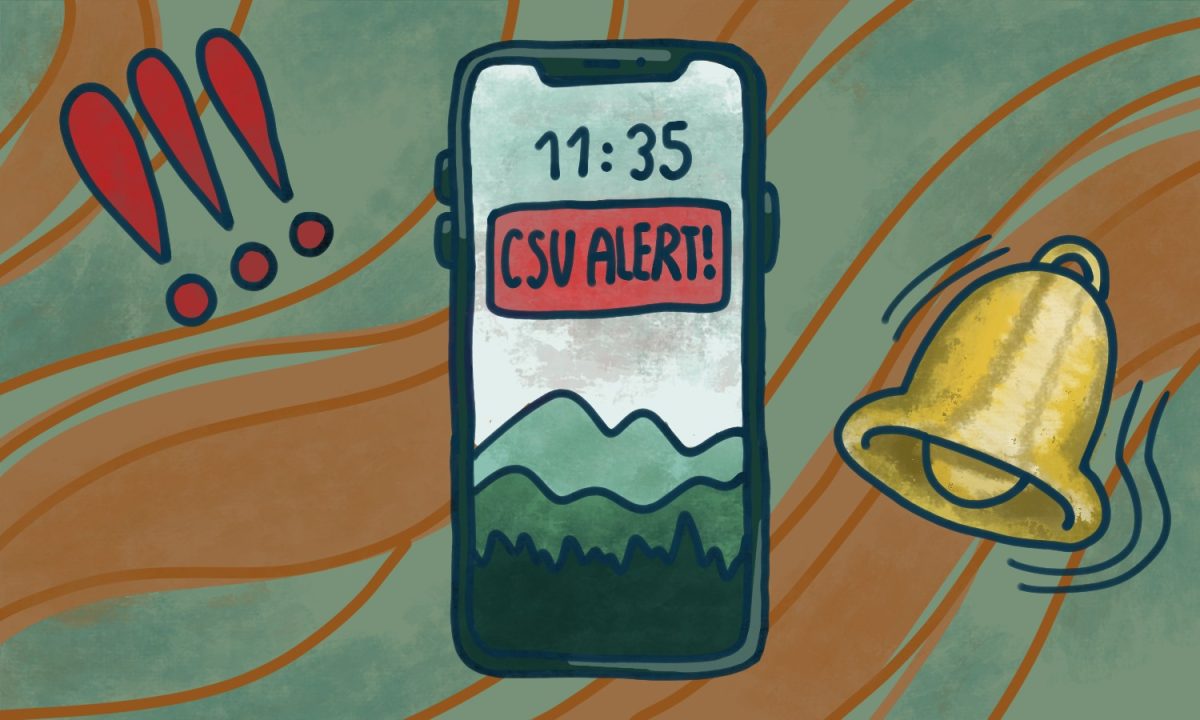Nota del Editor: El Collegian ha creado una sección para los lectores que hablan español. En esta sección podrá encontrar artículos en español tanto en línea como impresos. Para ir a la versión original en inglés, haga clic aquí. Traducido por estudiantes y profesores del departamento de lenguas, literaturas y culturas
Whether it’s in a motel or over the internet, human trafficking is happening in Northern Colorado, and limited resources and misconceptions about the issue make investigating and helping survivors harder.
Laura Knudsen, one of two officers in the Fort Collins Police Service Neighborhood Enforcement Team investigating human trafficking, said while people have been largely unaware of human trafficking activity in Fort Collins, it is happening in the area.
“We were kind of a community that denied it for a long time,” Knudsen said. “A lot of that had to do with ignorance and lack of education surrounding the topic … because everyone thinks of Fort Collins as a nice little town, but we’re going to have it everywhere.”
What is human trafficking?
Human trafficking in Colorado covers prostitution or other commercial sexual activity in which the victim is coerced into participating, Knudsen said.
“That could be transporting them, recruiting them, soliciting them or harboring them,” she said.
Knudsen also said if the victim is a minor, there does not have to be coercion to be considered human trafficking.
While human trafficking must include prostitution, the element of coercion separates victims of human trafficking from willing participants in commercial sexual activity.
“There’s this idea that, particularly in prostitution, it’s two consensual adults,” Knudsen said. “(With human trafficking), that’s false. Most of them are being controlled by somebody, almost like a domestic violence relationship.”
Portrayals of human trafficking in media can also create dramatized misunderstandings of what human trafficking looks like in the United States, said Daniel Eastman, a staff member for the nonprofit Free Our Girls. The Greeley-based organization helps survivors reintegrate as well as provides services to women actively involved in human trafficking.
Eastman said images of women tied or chained, which may be associated with the issue, can make it hard for people to recognize human trafficking in their communities. Likewise, he said these portrayals make it difficult for victims to contextualize what they are experiencing as human trafficking, as their situation may look completely different.
Is human trafficking happening in Fort Collins and Northern Colorado?
While every city with hotels sees commercial sexual activity, Knudsen said, the presence of I-25, which allows movement between cities on the Front Range and out into other states, is an element which drives human trafficking to Northern Colorado.
In Fort Collins specifically, solicitation of prostitution often doesn’t happen on the streets but over the internet and in hotels and businesses, Knudsen said. A number of online busts have successfully caught people looking to pay traffickers for sexual activity, she said.
FCPS has previously responded to calls which turned out to involve human trafficking at massage parlors, upper-end hotels and even the parking lot of Kohl’s, Knudsen said.
While Colorado has been prosecuting more human trafficking cases now than in the past, with upwards of 200 cases in the last five years, measuring how often it occurs is difficult because law enforcement agencies don’t have the resources to investigate to that extent, Knudsen said.
“There’s more trafficking than we know or are even able to prosecute,” she said. “I know the trafficking problem is way worse than even I understand.”
Who are the victims of human trafficking?
Most victims are originally coerced into trafficking between the ages of 12 and 15 and are often run-aways enticed by the offer of money, shelter and sometimes drugs, Knudsen said.
While people may think victims are brought into trafficking through kidnapping, the process of recruiting a victim is more like “grooming,” Eastman said. Traffickers often take weeks, months or years to develop a relationship with the victim before shuttling them into commercial sexual activity.
Knudsen also said she has encountered many victims who experienced physical or emotional abuse prior to being trafficked and may interpret manipulative behavior as love.
A process of developing isolation and dependency can cause long-term trauma for survivors, Eastman said.
“Victims that are coming out of commercial sexual exploitation have more post-traumatic stress disorder than soldiers coming back from combat,” Eastman said. “It’s complex trauma, so it’s very intense.”
Eastman also said survivors of human trafficking find reintegrating to be difficult.
“They’re really in a bubble when they’re in the life,” he said.
What is being done?
In the past decade efforts to address human trafficking in Northern Colorado have increased greatly.
As one of two officers investigating human trafficking with FCPS, Knudsen said she was able to be trained specifically for human trafficking cases only within the last few years. Resources for investigating human trafficking are limited, Knudsen said, because training and employing officers for the issue is costly and because the investigations can take years.
To limit law enforcement’s ability to collect enough evidence for probable cause, Knudsen said traffickers are careful to not remain in one town for more than a few days. Many of the completed cases she has worked on have been from citizens observing troubling behavior, which police cannot monitor continuously.
FCPS has also begun to work with organizations like Free Our Girls to both handle victims of human trafficking appropriately and to offer them resources.
Eastman said Free Our Girls is the only organization of its kind in the U.S. which offers resources to help survivors reintegrate into society through job training and care packages.
“The job program is the first of its kind in the country, so there aren’t really a lot of best practices,” Eastman said. “That’s why a survivor and trauma-informed approach is so important.”
Ravyn Cullor can be reached at news@collegian.com or on Twitter @RCullor99.










